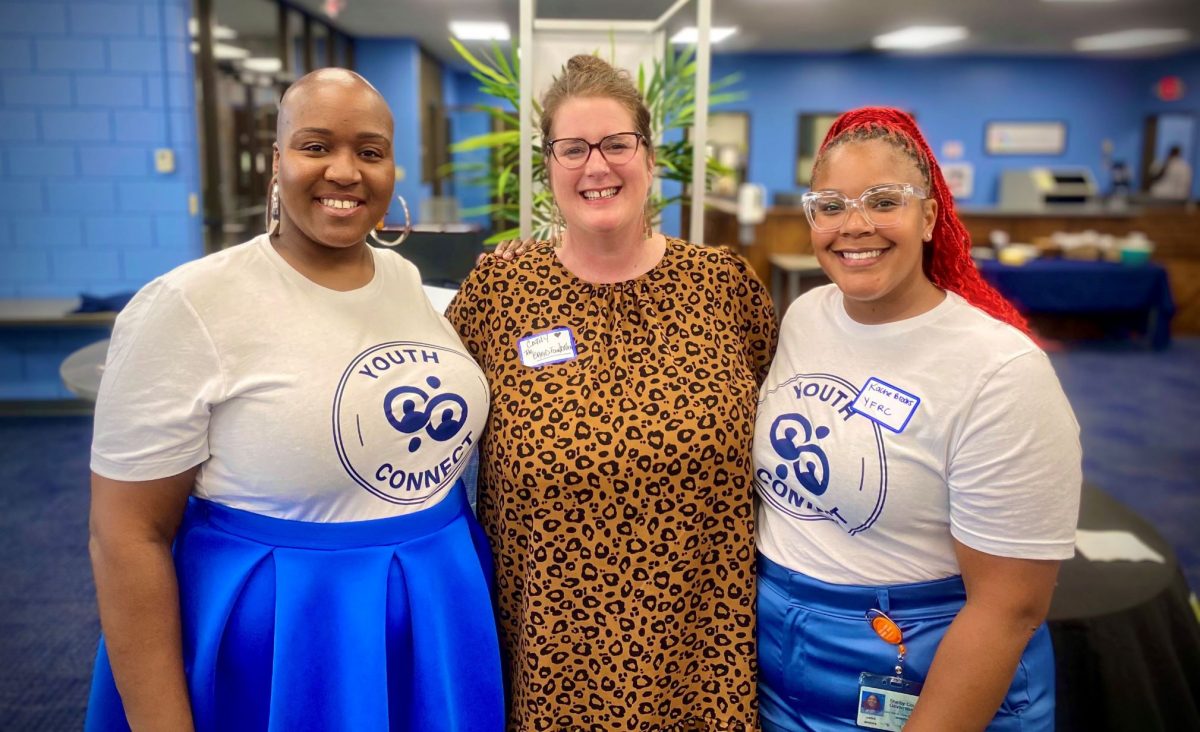Youth in Shelby County now have access to free therapy services through a partnership with the Shelby County Youth and Family Resource Center(SCYFRC) and The Braid Foundation.
The two organizations have joined together to launch Youth Connect, a service offering up to 12 free individual and group counseling services during the summer, after school, and on the weekends as needed.
Youth Connect officially launched in late May after years of planning and input from youth in the community. This service is available for anyone ages 13 to 18.
Dr. Shaneika Smith, co-executive director of the Braid Foundation and licensed professional counselor, and Cathy Emerson, co-founder of The Brain Foundation and school psychologist, say they have a combined 14 years of mental health practice in the Memphis area, which led them to work towards removing stigma around mental health and breaking down barriers to accessing mental health care.
On the private practice side, Smith said her and Emerson noticed that the idea that people had access to mental health services just because they had insurance wasn’t true.
“There’s one issue where a lot of our youth and families are not insured, but then there’s another issue where if you are insured you can have an insurance claim that does not cover mental health services at all,” Smith said.
Both Smith and Emerson worked in the school system and saw this as a recurring and consistent issue. This is also the extension of work started in 2020 where over 80 “youth-serving organizations” came to address youth mental health through the Coalition of Youth Mental Health.
“They’re the ones who really propelled this work,” Emerson said. “We were already seeing higher rates of suicide attempts, hospitalization due to self harm or self injurious behavior in Memphis and Shelby County — and now we add a pandemic to that.”
Emerson said this was how the work started, and after procuring the funding, they were able to lay the groundwork for what is now Youth Connect. She emphasized the support of Shelby County government by not only partnering with a nonprofit, but by creating Kache Brooks’ role, youth mental health coordinator at SCYFRC.
“Partnering with a nonprofit is one of the beauties [of this partnership.] Yes, serving the youth and getting people the help they need is the whole purpose of this work, but I think another highlight of this is that this is truly a blend of the community and government coming together to do something to address a need in a holistic, durable way,” Emerson said.
Emerson also said an important part of bringing this project into fruition was to have the voice of the people they’re helping. She said it was essential for both The Braid Foundation and SCYFRC to have a youth voice. Part of this was doing outreach work and conducting youth-centered surveys. They also wanted to know if there was there truly any stigma surrounding youth and mental health services.
Smith added that a lot of the times when programs are made for youth, the designers make assumptions about what is needed. By including youth input, they not only found out more about the needs of the community, but they found that their clients wanted to take an active approach to their mental health needs.
“As someone who works with youth, they even proved me wrong in the things that they wanted and the things they needed. That’s why youth voice is really important in this,” Smith said. “Some of the gaps that we see is with them and sharing with adults in their lives which therapy can really help them do…They’re talking to each other, and there’s not this stigma amongst each other about that.”
After surveying close to 250 young people in Shelby County prior to the launch, Youth Connect found that 46 percent of participants said they were “likely to extremely likely” to utilize therapy, while 84 percent said they would “not think negatively about someone who was in therapy.”
“One thing that we noticed is that with young people, the conversation is definitely there. They’re a lot more open than people might expect. That’s not to say that there isn’t any stigma at all, but I think a lot more young people are a lot more self aware than we give them credit for and open to bettering themselves in their mental health journey,” Brooks said.
This emphasize on self awareness and agency is evident in the application process as well, as Youth Connect encourages those interested to fill out the forms on their own.
“It’s your body, it’s your emotions, it’s your experience –don’t you want to have control over what that process looks like for you?” Emerson said. “What we know is when you are empowered to have responsibility for your own mental health and do the work and show up, that is going to have the long-lasting effects that therapy is supposed to have.”
